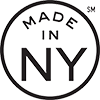Australia’s public health system, called Medicare, is funded in a large part by the Medicare levy. It’s an additional two percent of your taxable income on top of the income taxes you pay. You could qualify for a reduction or exemption from paying the Medicare levy depending on your circumstances. The Medicare levy is collected the same way as income tax, meaning a certain amount of your paycheck is withheld to cover the levy. Your actual Medicare levy is calculated when you file your tax return.
The public Australian healthcare system is one of the best in the developed world and sees a high demand for healthcare professionals. Medical professionals earn attractive salaries and can find career opportunities in urban and rural locations across the country. Medical school isn’t practical for everyone, and the great news is that there are plenty of career opportunities in healthcare that don’t require a medical degree. Whether you’re interested in a career that takes a few months of training, have an associate’s degree to put to use, or have the aptitude to pursue higher medical education, healthcare opportunities are endless.
InBusiness Mag highlights some of the best medical careers you’ve never heard of, such as nuclear medicine technologists, cardiovascular technologists and technicians, phlebotomists, plastic surgeons, occupational therapy assistants, respiratory therapists, orthotists and prosthetists, and surgical technologists. Anyone with a passion for helping others can pursue a career in the healthcare field without the worry of completing medical school. Even with a healthcare career, you may need help figuring out your Medicare levy surcharge.
Who is subject to the MLS?

You may be subject to paying an additional Medicare Levy Surcharge (MLS) if either you, your spouse, or dependents lack an appropriate amount of private patient hospital coverage and earn a certain income. When you, your spouse, or dependents do have sufficient private patient hospital coverage, you won’t be subject to the MLS. If you earn below a certain income, you could qualify for a private health insurance rebate. You may receive a rebate from the government towards the cost of your private health insurance premiums, and you could be exempt for part or all of the year.
How much would you need to pay?

The MLS is designed to incentivize high-income earners to carry private health insurance, which helps ease the burden on the public healthcare system. The levy is calculated based on your income and ranges between 1 percent and 1.5 percent starting with singles earning over $90,000 annually and couples or families earning a combined $180,000 annually. The MLS is payable for each day you don’t carry private health insurance coverage.
The Medical Levy Surcharge rate increases with your income, meaning the more you earn, the more you pay. Parents should also know that the family income threshold increases by $1,500 per dependent child if you have two or more children. iSelect.com.au breaks down all you need to know about the MLS for 2020, including what it is, how to calculate it, and how to qualify for an exemption.
When calculating your MLS, all of your taxable income, reportable fringe benefits, total net investment losses, and reportable super contributions are considered when determining your levy responsibility. Paying 1 percent of your income every day of the year can truly add up. The best way to avoid paying an MLS is to take out the appropriate amount of private hospital cover with the help of iSelect.com.au’s health insurance comparison tool.
Could you be exempt from paying either levy?

The good news is that exemptions do exist for both the Medicare levy and the MLS. You have to meet at least one of three exemption categories during the financial year to be exempt from the Medicare levy: 1) meet certain medical requirements, 2) are a foreign resident, or 3) aren’t entitled to Medicare benefits. You can claim your Medicare levy exemption on your annual income tax return and apply from a Medicare Entitlement Statement.
Singles earning less than $90,000 annually and couples, families, and single parents earning less than $180,000 are exempt from paying the MLS. The only way to avoid paying the MLS if your income exceeds the exemption levels is to take out private health insurance.
Ultimately, your annual income and whether or not you carry private health insurance coverage determines how much of a Medicare levy and Medicare levy surcharge you’re responsible for.





